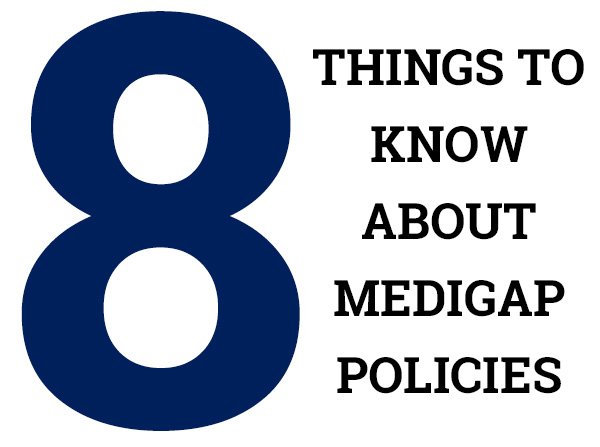MEDICARE SUPPLEMENT
A Medicare supplement (Medigap) insurance, sold by private companies, can help pay some of the health care costs that original Medicare doesn’t cover, like copayments, coinsurance, and deductibles.
Some Medigap policies also offer coverage for services that original Medicare doesn’t cover, like medical care when you travel outside the U.S. If you have original Medicare and you buy a Medigap policy, Medicare will pay its share of the Medicare-approved amount for covered health care costs. Then your Medigap policy pays its share.
A Medigap policy is different from a Medicare Advantage Plan. Those plans are ways to get Medicare benefits, while a Medigap policy only supplements your original Medicare benefits.
- You must have Medicare Part A and Part B.
- If you have a Medicare Advantage Plan, you can apply for a Medigap policy, but make sure you can leave the Medicare Advantage Plan before your Medigap policy begins.
- You pay the private insurance company a monthly premium for your Medigap policy in addition to the monthly Part B premium that you pay to Medicare.
- A Medigap policy only covers one person. If you and your spouse both want Medigap coverage, you’ll each have to buy separate policies.
- You can buy a Medigap policy from any insurance company that’s licensed in your state to sell one.
- Any standardized Medigap policy is guaranteed renewable even if you have health problems. This means the insurance company can’t cancel your Medigap policy as long as you pay the premium.
- Some Medigap policies sold in the past cover prescription drugs, but Medigap policies sold after January 1, 2006, aren’t allowed to include prescription drug coverage. If you want prescription drug coverage, you can join a Medicare Prescription Drug Plan (Part D).
- It’s illegal for anyone to sell you a Medigap policy if you have a Medicare Medical Savings Account (MSA) Plan.
Most people become eligible for Medicare at age 65. In 2022, the Part B monthly premium for most people is $170.10. Some high-income individuals pay more than the standard premium. Your Medicare Part B premium also can be higher if you do not enroll when you are first eligible, also known as your initial enrollment period. There also is a Medicare Part B deductible of $233.00 in 2022.
There also is a Medicare Part B deductible of $147 in 2014.





